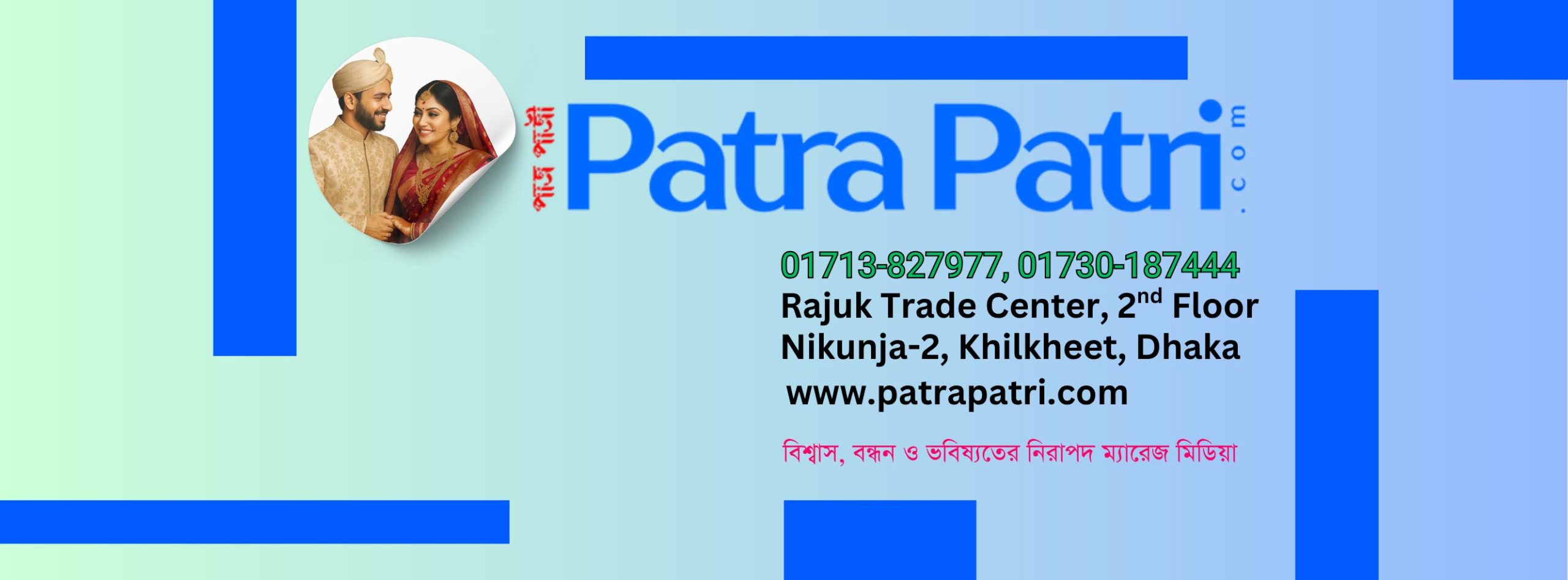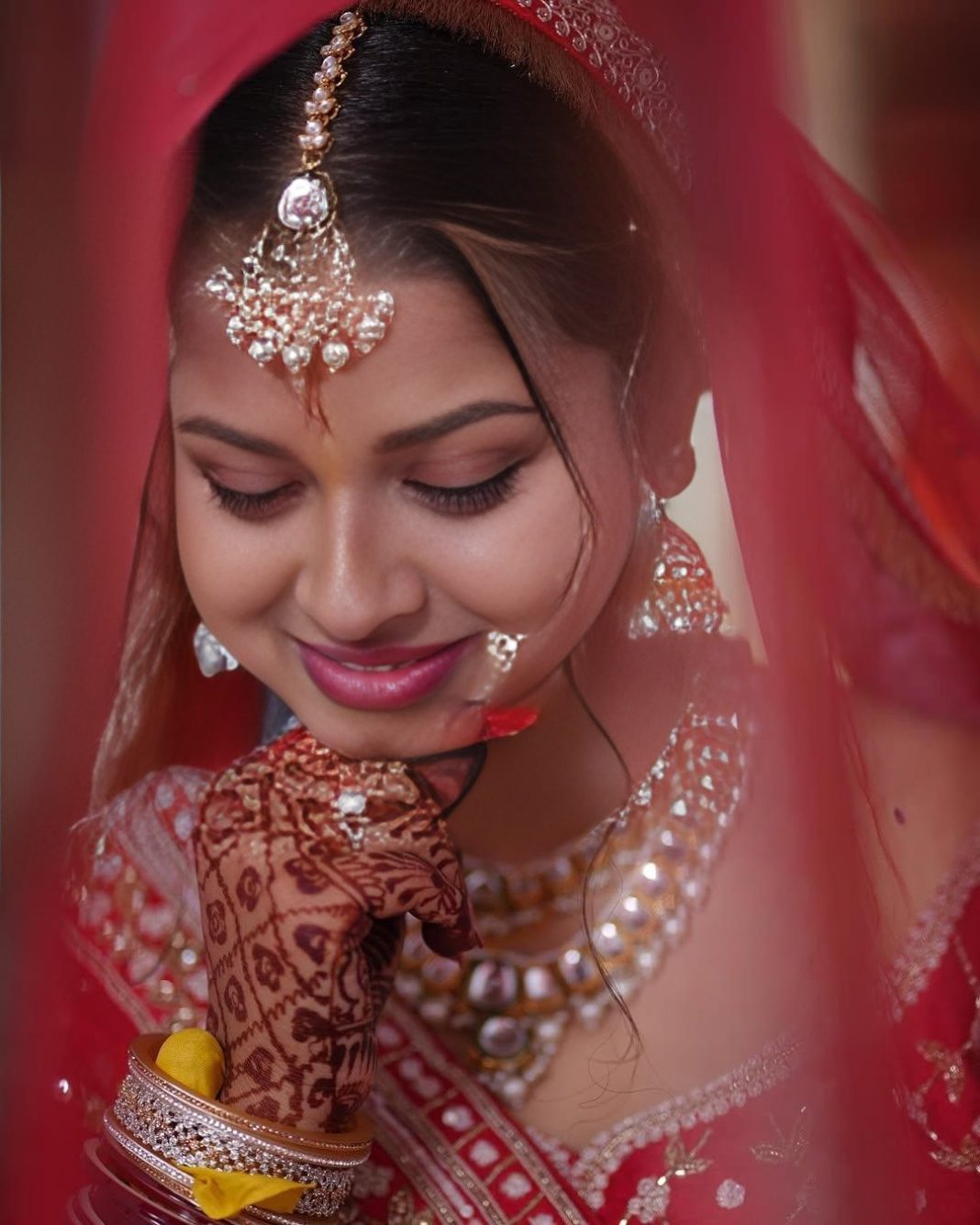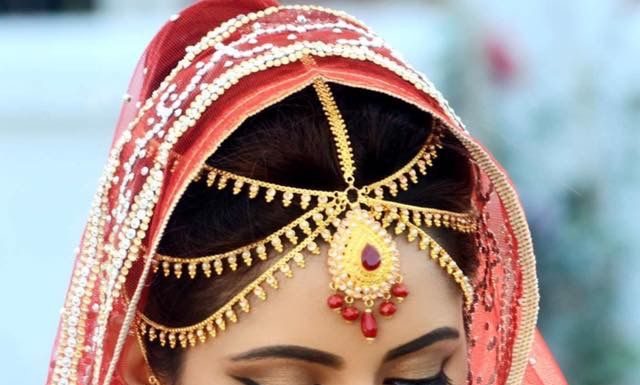How Does Bangladeshi Society View a Second Marriage? A Complex Social Picture
In Bangladesh, a second marriage is not merely a personal decision; it is deeply intertwined with social, religious, cultural, and economic contexts. Society’s perspective is not monolithic; it varies significantly based on class, region, education, economic status, and gender. To answer the question, “How does Bangladeshi society view a second marriage?” we must unravel this complex tapestry.
1. Religious Sanction and Social Boundaries:
-
Islamic Perspective (where applicable): In Bangladesh’s majority-Muslim society, Islamic law conditionally permits men to have up to four marriages simultaneously. However, the Quran clearly advises against multiple marriages if justice cannot be upheld. This religious sanction provides legal validity for a second marriage. But social acceptance differs from religious permission. Many believe that ‘permission does not mean encouragement’ and that ensuring justice (financial, physical, emotional) is nearly impossible, especially in modern contexts.
-
Other Religions: Hinduism generally forbids a second marriage (especially while the first wife is alive), though exceptions may exist in specific circumstances. Christianity also typically does not permit polygamy. Therefore, for followers of these religions, a second marriage is often religiously and socially unacceptable.
2. Gender Disparity in Perspective:
-
For Men: Society’s view towards men having a second marriage is relatively less harsh (though gradually changing), especially:
-
If the first wife has no children/has certain health issues: This is often seen as an ‘inevitable’ or ‘justified’ decision, particularly in rural or less educated communities. There’s a tendency to find ‘fault’ with the first wife.
-
If financially solvent: For wealthy or influential men, a second marriage is often seen as a ‘status symbol’ or ‘expression of masculinity,’ although it also attracts criticism. The notion that “money makes anything possible” plays a role.
-
In Rural & Traditional Societies: Multiple marriages for men are still somewhat tolerated socially, especially if the first wife consents or is well-provided for. However, the nature of this consent is often questionable.
-
-
For Women: In Bangladesh, a woman having a second marriage is almost universally a major social taboo and viewed extremely negatively.
-
Widowed or Divorced Women: Society’s view towards remarriage for widowed or divorced women remains largely conservative. Concepts of ‘chastity’ (‘sati’) and the attitude that ‘marriage is a lifelong commitment’ persist. While this is gradually changing in educated urban circles, underlying discomfort remains.
-
A Woman Marrying Again While Her Husband is Alive: This is socially unthinkable and met with severe condemnation. It is also illegal (considered adultery) religiously and legally. It is completely socially unacceptable for a woman, often leading to harsh repercussions.
-
3. Impact of Social Class and Geography:
-
Rural Society: Relatively more conservative, but second marriages for men are more visible and somewhat more tolerated here (though they cause immense suffering for the first wife and her family). Remarriage for women faces far greater obstacles. Clan/community pressure and honor (‘izzat’) are paramount. Traditions like obtaining the first wife’s consent (‘ejab’) exist, but her genuine freedom is often doubtful.
-
Urban Lower-Middle & Middle Class: The attitude towards second marriage here is generally highly negative, for both men and women. Due to education, modern values, and the shift from joint to nuclear families, a second marriage is seen as a threat to family stability, children’s futures, and financial security. Condemnation, gossip, and social isolation are likely. Second marriages are often confused with or equated to ‘affairs’ and viewed with equal disdain.
-
Educated Upper-Middle & Upper Class: Second marriages are less common here and generally seen as deviating from ‘elite’ norms. Those who do it, despite financial means, often maintain secrecy. While viewed critically, public criticism might be less overt. Attitudes towards women’s remarriage (especially divorced or widowed) are significantly more liberal here.
4. Impact on the First Wife and Family:
The most significant social impact of a second marriage falls on the first wife and her children. Society often views it as:
-
Humiliation, Disrespect, and Abandonment for the First Wife: There’s a tendency to label her as ‘inadequate’, ‘unsuccessful’, or ‘at fault’. Her mental anguish, financial insecurity, and loss of social status are severe.
-
Psychological Trauma and Future Uncertainty for Children: Children may suffer from depression, anger, and inferiority complexes. Complications and disputes over property and inheritance become likely.
-
Conflict Between Families: Enmity, jealousy, and conflict between the families of the first and second wives are very common.
5. The Second Wife’s Position:
The second wife (especially if it’s her first marriage) is also often viewed with suspicion by society. She may be labeled as the ‘homewrecker’, ‘greedy’, or ‘immoral’. Her social status often doesn’t equal that of the first wife, particularly within the husband’s family or the wider community. Her children may also face discrimination.
6. Legal Complexity and Social Reality:
Under Bangladeshi Muslim Family Law, while a second marriage is legal, it must be registered, and written consent from the first wife must be obtained by the Marriage Registrar (Kazi). In reality, this law is frequently flouted. Men often remarry without informing the first wife, coercing consent, or making false declarations. This is a punishable offense. While part of society supports this law, others see it as infringing on personal freedom. The prevalence of flouting this law reinforces the perception of illegitimacy and moral failing associated with second marriages.
7. Changing Society and Increasing Negativity:
Modern education, increasing economic empowerment of women, awareness of women’s rights, media influence, and changes in family structure (joint to nuclear) are all making Bangladeshi society’s view of second marriage increasingly negative. Particularly among the urban, educated middle class and younger generation:
-
A second marriage is seen as ‘unnecessary’, ‘selfish’, and ‘family-destroying’.
-
Sensitivity towards women’s rights and dignity has increased.
-
Divorce followed by remarriage is viewed as more acceptable and ethical than a second marriage while the first subsists.
-
The ‘religious permission’ for polygyny is being re-evaluated in the light of social morality.
8. Forms of Social Reaction:
-
Condemnation and Gossip: A second marriage usually sparks widespread condemnation, criticism, and rumors. Families fear a loss of social standing (‘Loss of Face’).
-
Social Isolation: The family may face social exclusion from events and strained relationships with relatives.
-
Family Conflict: It often triggers intense family feuds and even legal battles (over maintenance, property).
-
Sympathy (for the First Wife): Society generally sympathizes with the first wife, though she might sometimes be blamed with comments like “why couldn’t she stop it?”
Conclusion: A Contradictory Perspective
Bangladeshi society’s view of second marriage reflects a deep contradiction. On one hand, there’s the tradition of religious sanction, patriarchal values, and a tendency towards social approval in certain specific circumstances (e.g., childlessness). On the other hand, modernity, awareness of women’s rights, the value placed on family stability, and sensitivity to individual suffering are creating increasing negativity towards second marriages.
Ultimately, it is evident that:
-
For men, there is still some space under religious cover, especially in villages and specific situations, but its acceptability is rapidly declining in educated urban society, where condemnation is primary.
-
For women, a second marriage (while the husband is alive) is completely socially unacceptable and forbidden. Remarriage (for widows/divorcees) still faces obstacles, though it is gradually becoming easier in educated urban circles.
-
The impact on the first wife and children is universally considered extremely destructive, forming a strong social argument against second marriages.
-
The gap between law and reality facilitates social injustice and violence against women.
The Most Important Message: A second marriage is not just a legal or religious question; it is a profound human and familial issue. Regardless of society’s perspective, the potential mental, social, and economic suffering of the individuals involved (first wife, second wife, husband, children), along with considerations of justice and responsibility, should be prioritized. Bangladeshi society is increasingly leaning towards this reality, where individual well-being, family stability, and women’s dignity are gaining precedence over religious permission. Therefore, beyond “what will society think?”, the bigger question regarding a second marriage is, “what impact will it have on the lives of all involved?”
(বাংলা অনুবাদ)
দ্বিতীয় বিয়ে করলে বাংলাদেশের সমাজ কীভাবে দেখে? একটি জটিল সামাজিক চিত্র
বাংলাদেশে দ্বিতীয় বিয়ে শুধু একটি ব্যক্তিগত সিদ্ধান্ত নয়; এটি গভীর সামাজিক, ধর্মীয়, সাংস্কৃতিক ও অর্থনৈতিক প্রেক্ষাপটে আবদ্ধ একটি বিষয়। সমাজের দৃষ্টিভঙ্গি একরৈখিক নয়, বরং নানা স্তর, অঞ্চল, শিক্ষা, অর্থনৈতিক অবস্থা এবং লিঙ্গভেদে তা ব্যাপকভাবে ভিন্ন হয়। “দ্বিতীয় বিয়ে করলে বাংলাদেশের সমাজ কীভাবে দেখে?” এই প্রশ্নের উত্তর পেতে হলে, আমাদের এই জটিল ট্যাপেস্ট্রিটাকে খতিয়ে দেখতে হবে।
১. ধর্মীয় অনুমোদন ও সামাজিক সীমারেখা:
-
ইসলামি দৃষ্টিভঙ্গি (প্রযোজ্য ক্ষেত্রে): বাংলাদেশের সংখ্যাগরিষ্ঠ মুসলিম সমাজে ইসলামি বিধান অনুযায়ী পুরুষদের জন্য একসাথে সর্বোচ্চ চারটি বিয়ে করার অনুমতি শর্তসাপেক্ষে আছে। তবে কোরআনে স্পষ্ট বলা হয়েছে, ন্যায়বিচার প্রতিষ্ঠা করতে না পারলে একটির বেশি বিয়ে না করার পরামর্শ দেওয়া হয়েছে। এই ধর্মীয় অনুমোদনই দ্বিতীয় বিয়ের জন্য আইনি বৈধতা দেয়। কিন্তু সামাজিক গ্রহণযোগ্যতা ধর্মীয় অনুমতির চেয়ে আলাদা। অনেকেই মনে করেন, ‘অনুমতি আছে মানেই উৎসাহিত করা হচ্ছে না’ এবং ন্যায়বিচার (আর্থিক, শারীরিক, মানসিক) নিশ্চিত করা প্রায় অসম্ভব, বিশেষত আধুনিক প্রেক্ষাপটে।
-
অন্যান্য ধর্ম: হিন্দু ধর্মে সাধারণত দ্বিতীয় বিয়ে (বিশেষত স্ত্রীর জীবিত থাকতে) নিষিদ্ধ, যদিও কিছু নির্দিষ্ট পরিস্থিতিতে ব্যতিক্রম হতে পারে। খ্রিস্টান ধর্মেও সাধারণত একসাথে একাধিক বিয়ের অনুমতি নেই। তাই এসব ধর্মাবলম্বীদের জন্য দ্বিতীয় বিয়ে প্রায়শই ধর্মীয় ও সামাজিকভাবে অগ্রহণযোগ্য।
২. লিঙ্গভেদে দৃষ্টিভঙ্গির বৈষম্য:
-
পুরুষদের জন্য: পুরুষদের দ্বিতীয় বিয়ের ক্ষেত্রে সমাজের দৃষ্টিভঙ্গি তুলনামূলকভাবে কম কঠোর (যদিও ক্রমশ পরিবর্তন হচ্ছে)। বিশেষ করে:
-
প্রথম স্ত্রীর সন্তান না হলে/কিছু নির্দিষ্ট শারীরিক সমস্যা থাকলে: এটিকে প্রায়শই একটি ‘অবশ্যম্ভাবী’ বা ‘ন্যায্য’ সিদ্ধান্ত হিসেবে দেখা হয়, বিশেষত গ্রামীণ বা কম শিক্ষিত সমাজে। প্রথম স্ত্রীর ‘দোষ’ খুঁজে বের করার প্রবণতা থাকে।
-
আর্থিক সচ্ছলতা থাকলে: ধনী বা প্রভাবশালী ব্যক্তিদের জন্য দ্বিতীয় বিয়ে প্রায়শই ‘স্ট্যাটাস সিম্বল’ বা ‘পুরুষত্বের প্রকাশ’ হিসেবে দেখা যায়, যদিও এর নিন্দাও কম হয় না। “টাকার জোরে সব হয়” – এই ধারণা কাজ করে।
-
গ্রামীণ ও ঐতিহ্যবাহী সমাজে: কিছু ক্ষেত্রে এখনও পুরুষদের জন্য একাধিক বিয়ে সামাজিকভাবে সহনশীল, বিশেষত প্রথম স্ত্রীর সম্মতি থাকলে বা তাকে ভালো রাখলে। তবে এই সম্মতির প্রকৃতি প্রায়শই প্রশ্নবিদ্ধ।
-
-
নারীদের জন্য: বাংলাদেশে নারীদের দ্বিতীয় বিয়ে করা প্রায় সর্বত্রই একটি বড় সামাজিক ট্যাবু এবং অত্যন্ত নেতিবাচক দৃষ্টিতে দেখা হয়।
-
বিধবা বা তালাকপ্রাপ্তা নারী: বিধবা বা তালাকপ্রাপ্তা নারীর পুনর্বিবাহের ক্ষেত্রে সমাজের দৃষ্টিভঙ্গি এখনও অনেকটাই রক্ষণশীল। ‘সতী’ এর ধারণা এবং ‘একবার বিয়ে মানেই চিরকালের জন্য বাধ্যবাধকতা’ এর মনোভাব কাজ করে। যদিও শহুরে শিক্ষিত সমাজে এটি ক্রমশ পরিবর্তন হচ্ছে, তবুও নিগূঢ় অস্বস্তি থেকে যায়।
-
স্বামী জীবিত থাকতে নারীর দ্বিতীয় বিয়ে: এটি সমাজে অকল্পনীয় এবং চরম নিন্দার বিষয়। ধর্মীয় ও আইনগতভাবেও এটি অবৈধ (ব্যভিচার হিসেবে গণ্য)। নারীর জন্য এটি সামাজিকভাবে সম্পূর্ণ অগ্রহণযোগ্য এবং নির্মম প্রতিক্রিয়ার শিকার হতে হয়।
-
৩. সামাজিক স্তর ও ভৌগোলিক অবস্থানের প্রভাব:
-
গ্রামীণ সমাজ: তুলনামূলকভাবে রক্ষণশীল, তবে পুরুষদের দ্বিতীয় বিয়ে এখানে বেশি দৃশ্যমান এবং কিছুটা বেশি সহনশীল (যদিও প্রথম স্ত্রী ও তার পরিবারের জন্য ভয়াবহ দুর্ভোগের কারণ হয়)। নারীদের পুনর্বিবাহে এখনও বাধা অনেক বেশি। গোত্র/সম্প্রদায়ের চাপ ও সম্মান (‘ইজ্জত’) এর বিষয়টি অত্যন্ত গুরুত্বপূর্ণ। প্রথম স্ত্রীর সম্মতি বা ‘ইজাব’ নেওয়ার প্রথা আছে, কিন্তু তার প্রকৃত স্বাধীনতা প্রায়শই সন্দেহের ঊর্ধ্বে নয়।
-
শহুরে নিম্ন-মধ্যবিত্ত ও মধ্যবিত্ত সমাজ: এখানে দ্বিতীয় বিয়ের প্রতি দৃষ্টিভঙ্গি সাধারণত অত্যন্ত নেতিবাচক, পুরুষ ও নারী উভয়ের জন্যই। শিক্ষা, আধুনিক ধ্যানধারণা এবং যৌথ পরিবার ভেঙে একক পরিবার বৃদ্ধি পাওয়ার কারণে, দ্বিতীয় বিয়েকে পরিবারের স্থায়িত্ব, সন্তানের ভবিষ্যৎ এবং আর্থিক নিরাপত্তার জন্য হুমকি হিসেবে দেখা হয়। নিন্দা, গঞ্জনা এবং সামাজিক বিচ্ছিন্নতা ঘটার সম্ভাবনা বেশি। ‘পরকীয়া’ বা ‘অ্যাফেয়ার’ এর সাথে দ্বিতীয় বিয়েকে প্রায়শই গুলিয়ে ফেলা হয় এবং সমানভাবে ঘৃণার চোখে দেখা হয়।
-
শিক্ষিত উচ্চ-মধ্যবিত্ত ও উচ্চবিত্ত সমাজ: এখানে দ্বিতীয় বিয়ের ঘটনা কম, এবং এটিকে সাধারণত ‘অভিজাত’ আচরণের বহির্ভূত হিসেবে দেখা হয়। যারা করেন, তাদের আর্থিক সচ্ছলতা থাকলেও প্রায়শই গোপনীয়তা বজায় রাখা হয় এবং সামাজিকভাবে এটি নিন্দার সাথেই দেখা হয়, তবে প্রকাশ্যে সমালোচনা কম হতে পারে। নারীদের পুনর্বিবাহের প্রতি দৃষ্টিভঙ্গি এখানে তুলনামূলকভাবে অনেক বেশি উদার (বিশেষত তালাকপ্রাপ্তা বা বিধবাদের ক্ষেত্রে)।
৪. প্রথম স্ত্রী ও পরিবারের উপর প্রভাব:
দ্বিতীয় বিয়ের সবচেয়ে বড় সামাজিক প্রভাব পড়ে প্রথম স্ত্রী ও তার সন্তানদের উপর। সমাজ এটিকে প্রায়শই দেখে:
-
প্রথম স্ত্রীর জন্য অপমান, অবমাননা ও পরিত্যাগ: তাকে ‘অপূর্ণাঙ্গ’, ‘অসফল’ বা ‘দোষী’ হিসেবে চিহ্নিত করার প্রবণতা থাকে। তার মানসিক যন্ত্রণা, আর্থিক অনিশ্চয়তা এবং সামাজিক মর্যাদাহানি হয় মারাত্মক।
-
সন্তানদের জন্য মানসিক ট্রমা ও ভবিষ্যৎ অনিশ্চয়তা: সন্তানরা হতাশা, রাগ, হীনমন্যতাবোধে ভুগতে পারে। সম্পত্তি ও উত্তরাধিকার নিয়ে জটিলতা ও বিরোধের আশঙ্কা তৈরি হয়।
-
দুই পরিবারের মধ্যে সংঘাত: প্রথম স্ত্রী ও দ্বিতীয় স্ত্রীর পরিবারের মধ্যে শত্রুতা, ঈর্ষা এবং সংঘাতের পরিবেশ তৈরি হওয়া খুবই স্বাভাবিক।
৫. দ্বিতীয় স্ত্রীর অবস্থান:
দ্বিতীয় স্ত্রীকেও (বিশেষত যদি তার প্রথম বিয়ে না হয়ে থাকে) প্রায়শই সমাজ সন্দেহের চোখে দেখে। তাকে ‘পরিবার ভাঙার কারণ’, ‘লোভী’ বা ‘অনৈতিক’ হিসেবে লেবেল দেওয়া হতে পারে। তার সামাজিক মর্যাদাও প্রায়শই প্রথম স্ত্রীর সমান হয় না, বিশেষত স্বামীর পরিবার বা বৃহত্তর সমাজে। তার সন্তানরাও বৈষম্যের শিকার হতে পারে।
৬. আইনি জটিলতা ও সামাজিক বাস্তবতা:
বাংলাদেশে মুসলিম পারিবারিক আইন অনুযায়ী, দ্বিতীয় বিয়ে বৈধ হলেও তা অবশ্যই রেজিস্ট্রি করতে হয় এবং বিবাহ রেজিস্ট্রারের কাছে প্রথম স্ত্রীর লিখিত সম্মতি নিতে হয়। বাস্তবে, এই আইন প্রায়শই উপেক্ষিত হয়। পুরুষেরা প্রায়ই প্রথম স্ত্রীকে না জানিয়ে বা জোরপূর্বক সম্মতি আদায় করে অথবা মিথ্যা ঘোষণা দিয়ে দ্বিতীয় বিয়ে করেন। এটি আইনত শাস্তিযোগ্য অপরাধ। সমাজের একটি অংশ এই আইনকে সমর্থন করে, আবার অনেকেই মনে করে এটি ব্যক্তিগত স্বাধীনতায় হস্তক্ষেপ। এই আইন লঙ্ঘনের প্রবণতা সমাজে দ্বিতীয় বিয়ের প্রতি অবৈধতা ও নৈতিক স্খলনের ধারণাকেই শক্তিশালী করে।
৭. পরিবর্তনশীল সমাজ ও ক্রমবর্ধমান নেতিবাচক ধারা:
আধুনিক শিক্ষা, নারীর অর্থনৈতিক স্বাবলম্বিতা বৃদ্ধি, নারীর অধিকার সম্পর্কে সচেতনতা, গণমাধ্যমের প্রভাব এবং পারিবারিক কাঠামোর পরিবর্তন (যৌথ থেকে একক পরিবার) – এই সবকিছুই বাংলাদেশের সমাজে দ্বিতীয় বিয়ের প্রতি দৃষ্টিভঙ্গিকে ক্রমশ অধিকতর নেতিবাচক দিকে নিয়ে যাচ্ছে। বিশেষ করে শহুরে, শিক্ষিত মধ্যবিত্ত ও তরুণ প্রজন্মের মধ্যে:
-
দ্বিতীয় বিয়েকে ‘অপ্রয়োজনীয়’, ‘স্বার্থপর’ এবং ‘পরিবার ধ্বংসকারী’ কাজ হিসেবে দেখা হয়।
-
নারীর অধিকার ও মর্যাদার বিষয়ে সংবেদনশীলতা বেড়েছে।
-
প্রথম বিয়েতে সমস্যা হলে তালাকের পর পুনর্বিবাহকে দ্বিতীয় বিয়ের চেয়ে বেশি গ্রহণযোগ্য এবং সৎ পথ হিসেবে দেখা হয়।
-
দ্বিতীয় বিয়ের ‘ধর্মীয় অনুমতি’কে সামাজিক নৈতিকতার আলোকে পুনর্মূল্যায়ন করা হচ্ছে।
৮. সামাজিক প্রতিক্রিয়ার রূপ:
-
নিন্দা ও গুজব: দ্বিতীয় বিয়ে সাধারণত ব্যাপক নিন্দা, সমালোচনা এবং গুজবের জন্ম দেয়। পরিবার সামাজিক সম্মানহানি (Loss of Face) এর ভয় পায়।
-
সামাজিক বিচ্ছিন্নতা: পরিবারটি সামাজিক অনুষ্ঠান, আত্মীয়তার সম্পর্ক থেকে বিচ্ছিন্ন হয়ে পড়তে পারে বা অস্বস্তিকর পরিস্থিতির সম্মুখীন হতে পারে।
-
পরিবারিক সংঘাত: এটি প্রায়শই তীব্র পারিবারিক কলহ, এমনকি আইনি লড়াইয়ের (ভরণপোষণ, সম্পত্তি) সূচনা করে।
-
সহানুভূতি (প্রথম স্ত্রীর জন্য): প্রথম স্ত্রীর জন্য সাধারণত সমাজের সহানুভূতি থাকে, যদিও কখনও কখনও তার প্রতিও ‘কেন ঠেকাতে পারলো না’ এরকম দোষারোপ করা হয়।
উপসংহার: একটি দ্বন্দ্বময় দৃষ্টিভঙ্গি
বাংলাদেশের সমাজে দ্বিতীয় বিয়ের প্রতি দৃষ্টিভঙ্গি একটি গভীর দ্বন্দ্বের প্রতিফলন। একদিকে রয়েছে ধর্মীয় অনুমতির ঐতিহ্য, পুরুষতান্ত্রিক মূল্যবোধ এবং কিছু নির্দিষ্ট পরিস্থিতিতে (যেমন: সন্তানহীনতা) সামাজিক অনুমোদনের প্রবণতা। অন্যদিকে, আধুনিকতা, নারীর অধিকার সচেতনতা, পারিবারিক স্থিতিশীলতার প্রতি মূল্যবোধ এবং ব্যক্তির মানসিক কষ্টের প্রতি সংবেদনশীলতা দ্বিতীয় বিয়ের প্রতি ক্রমবর্ধমান নেতিবাচকতা তৈরি করছে।
সর্বোপরি, এটি প্রমাণিত হয় যে:
-
পুরুষদের জন্য এটি এখনও ধর্মীয় আড়ালে কিছুটা স্পেস আছে, বিশেষত গ্রামে ও কিছু নির্দিষ্ট পরিস্থিতিতে, কিন্তু শহুরে শিক্ষিত সমাজে এর গ্রহণযোগ্যতা দ্রুত হ্রাস পাচ্ছে এবং নিন্দাই মুখ্য।
-
নারীদের জন্য দ্বিতীয় বিয়ে (স্বামী জীবিত থাকতে) সামাজিকভাবে সম্পূর্ণ অগ্রহণযোগ্য ও নিষিদ্ধ। পুনর্বিবাহের (বিধবা/তালাকপ্রাপ্তা) ক্ষেত্রেও এখনও বাধা আছে, তবে শহুরে শিক্ষিত সমাজে তা ক্রমশ কমছে।
-
প্রথম স্ত্রী ও সন্তানদের উপর এর প্রভাব সর্বত্রই অত্যন্ত ধ্বংসাত্মক হিসেবে বিবেচিত হয়, যা দ্বিতীয় বিয়ের বিরুদ্ধে শক্তিশালী সামাজিক যুক্তি তৈরি করে।
-
আইন ও বাস্তবতার মধ্যে ফারাক সামাজিক অবিচার ও নারী নির্যাতনের পথ প্রশস্ত করে।
সবচেয়ে গুরুত্বপূর্ণ বার্তা: দ্বিতীয় বিয়ে শুধু আইনি বা ধর্মীয় প্রশ্ন নয়; এটি একটি গভীর মানবিক ও পরিবারিক বিষয়। সমাজের দৃষ্টিভঙ্গি যাই হোক না কেন, এর সিদ্ধান্তের কেন্দ্রে থাকা ব্যক্তি (প্রথম স্ত্রী, দ্বিতীয় স্ত্রী, স্বামী, সন্তান) সকলের সম্ভাব্য মানসিক, সামাজিক ও অর্থনৈতিক কষ্ট, ন্যায়বিচার এবং দায়িত্বশীলতার বিষয়টি অগ্রাধিকার পাওয়া উচিত। বাংলাদেশের সমাজ ক্রমশই এই বাস্তবতার দিকে ঝুঁকছে, যেখানে ব্যক্তির কল্যাণ, পারিবারিক স্থিতিশীলতা এবং নারীর সম্মান ধর্মীয় অনুমতির চেয়ে বেশি প্রাধান্য পাচ্ছে। তাই, দ্বিতীয় বিয়ে ‘সমাজ কী ভাববে’ তার চেয়েও বড় প্রশ্ন হলো, ‘এটি সংশ্লিষ্ট সকলের জীবনে কী প্রভাব ফেলবে?’
























